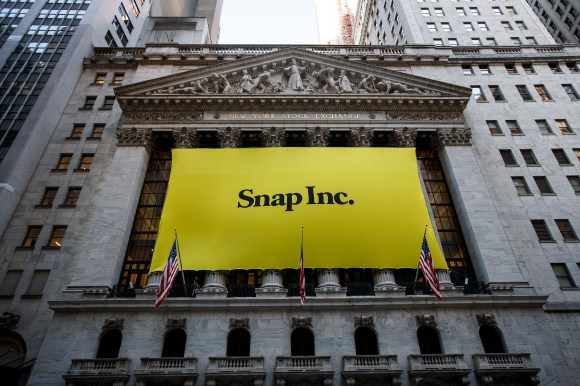
Tencent, the Chinese internet giant valued at
$470 billion, may have a hand in rebooting the Snapchat app to make it
more competitive with Instagram and Facebook.
Off the back of some very poor financials announced this week, parent company Snap said it is retooling the messaging app “to make it easier to use.”Now Tencent, which upped its stake in Snap with the purchase of 12 percent of the company — forking out around $2 billion in the process — may be on hand to help. It said is positioned to enable Snap to dig into its experience of growing WeChat, China’s dominant messaging app which boasts 800 million monthly users worldwide, and potentially tap into other business lines, including its games business which includes Clash Of Clans maker Supercell.
“The investment enables Tencent to explore cooperation opportunities with the company on mobile games publishing and newsfeed as well as to share its financial returns from the growth of its businesses and monetization in the future,” a Tencent spokesperson told Reuters in a statement.
Tencent first invested in Snap in 2013 although the size of its stake in the company is not public information. As backers go, the company brings considerable clout and know-how in the messaging space. Most impressive is the manner in which it turned WeChat from a messaging app into a social ‘Swiss army knife’ that users in China turn to for a range of services including payment, e-commerce, local services, investments, banking and more.
Tencent also has a long-standing interest in U.S. tech companies, and it hasn’t been shy backing a number with investments. Its U.S. portfolio includes chat app Kik, Tesla and games firm Activision, while it has invested in global messaging apps like Hike in India and South Korea’s Kakao.
This experience is likely to be welcomed by Snap as it looks for what trends will come next in messaging and alternative ways it can engage users to compete with Instagram.
Source: TechCrunch
Niciun comentariu:
Trimiteți un comentariu